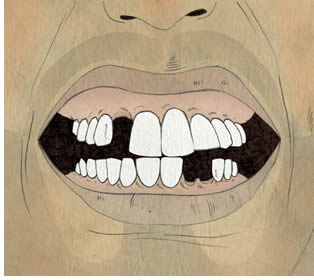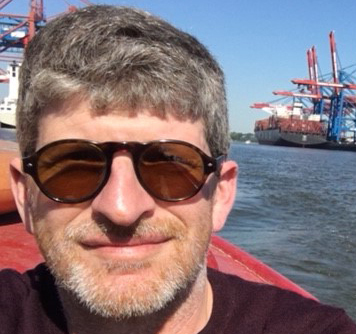Canada’s Universal Health-Care System stops, for a series of complicated and unpalatable reasons, at the gum line – a boundary not recognized by the human body. According to Jim Leake, a U of T professor emeritus of community dentistry, this artificial dividing line leaves tens of thousands of Canadians – especially low-income families, First Nations people and children – without adequate dental care.
What’s most lamentable, says Leake, is that, not so long ago, Canada was inching toward a comprehensive dental care system. Across Canada, government spending on dental care as a portion of total dental spending rose from just one per cent in 1960 to a high-water mark of 14 per cent in 1980. The numbers started to fall in the 1990s when the provinces began cutting dental funding. Today, about two-thirds of Canadians rely on private dental insurance, and access to a dentist’s care – unlike a physician’s – is largely determined by income: the more you make, the more likely you are to receive dental care.
But, as Leake notes, our current system – often described as a partnership between governments, employers and insurers – relies on government subsidy in the form of a tax benefit for employer dental plans: the premiums that employers pay for their staff are not considered part of the employees’ taxable income. This lost tax revenue, about $3 billion a year, has to be made up from somewhere else.
Who makes up the difference? We all do, including the one third of Canadians who don’t have a dental plan and pay for dental care in after-tax dollars – if they can afford it. Perversely, says Leake, low-income, non-insured individuals end up paying higher taxes to help finance the dental care of their wealthier neighbours who are fortunate enough to have a private plan. Not surprisingly, Leake argues that we’re getting it backwards. Many Aboriginal Peoples and children in low-income families have high levels of tooth decay. This is worrisome because researchers suspect a link between poor oral health and diabetes and geriatric pneumonia. Individuals with diseased or missing teeth also have trouble finding jobs.
A few municipal public health departments offer free dental care to the disadvantaged, but Leake points out that these arrangements merely illustrate how neglected Canada’s dental care system has become. He believes Canadians should consider universal dental care built around a government insurance system. But given funding constraints and opposition from the dental profession, he would accept a policy that ensures dental care for vulnerable populations. At the same time, Leake says that to improve access to dental care, he would like to see dentistry folded into Health Canada’s plan to establish clinics offering a wide range of health care services – not just the medical care offered by physicians. “Dentistry should be very much part of it,” Leake says. At the moment, however, no one’s reaching across this yawning divide.







No Responses to “ Gum Control ”
Professor Emeritus Jim Leake suggests that government tax benefits for employer dental plans result in “lost tax revenue.” He is quoted indirectly as saying that “perversely, low-income, non-insured individuals end up paying higher taxes to help finance the dental care of their wealthier neighbours who are fortunate enough to have a private plan.”
That’s a bit of a stretch, isn’t it? Perhaps I should argue that, more perversely, high income individuals, in addition to working hard to land a job with dental benefits, also end up paying higher taxes to help finance the health care of their poorer neighbours (via higher tax brackets, high-income surtax and Ontario Health Premiums). I don’t argue against universal health or dental care, and the article quite intrigued me. But I don’t think Leake will win favour for his cause with the educated readers of this magazine with such wishy-washy claims.
Shannon Hickey
BSc 1999 UC
Georgina, Ontario
There are too many people in this country without proper access to dental care. Many kids are suffering because their parents cannot afford to take them to the dentist. The government needs to do something to help these people in need.
The time has come to challenge in the courts, the Supreme Court if necessary, this fallacy that my teeth and therefore my dental health is not part of my body and therefore not covered by the Canadian Health Care system. The facts, the truth and the arguments as well the economics will more than overwhelm the self serving interests of the dentists. I hope others will join me to initiate such a class action.
I can be reached at (780) 967-1048
I am really grateful that I have access to dental care. There are a lot of people in the world who don't. I did not go to the dentist a lot as a teenager, but now I go whenever I can get in.